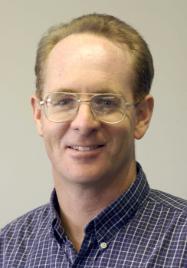Economist says super tax needs changes
Published on 17 June, 2010
The Federal Government's proposed resource super profits tax (RSPT) could slowdown future mining activity according to Regional Development Economist Professor John Rolfe.
The CQUniversity professor presented a keynote address on the proposed new tax at the Mining and Community Research Forum in Mackay this week (Wednesday June 16).

Professor John Rolfe"While there are advantages in moving from a royalty system to a profits-based tax for resources, there are risks that the design and rate of the current RSPT proposal can cause a slowdown in future mining activity," Professor Rolfe said.
"It is very difficult to set an appropriate tax rate with higher tax rates potentially reducing returns to mining ventures and future levels of investment."
Professor Rolfe told the forum that the Government's Brown Tax format was also problematic for the mining industry.
He said that efficiency gains had to be weighed against several disadvantages with the system.
Firstly, it was not clear that capital and risks are fully considered; secondly, there are sovereign risks in changing arrangements for existing projects; thirdly, arrangements are difficult to explain and understand; and finally it effectively transfers risks from low risk projects to high risk ones.
Professor Rolfe recommended the government start with a lower rate and increase the tax over time and abandon the Brown Tax system in favour of a simple profits tax.
Professor Rolfe also commented that proceeds from the tax should be focused on increasing future productivity in the economy, rather than providing rewards and handouts.
"Proceeds should be focussed on building skills, the economy and communities for the future.
"Regional areas with strong growth prospects should benefit from these initiatives."

